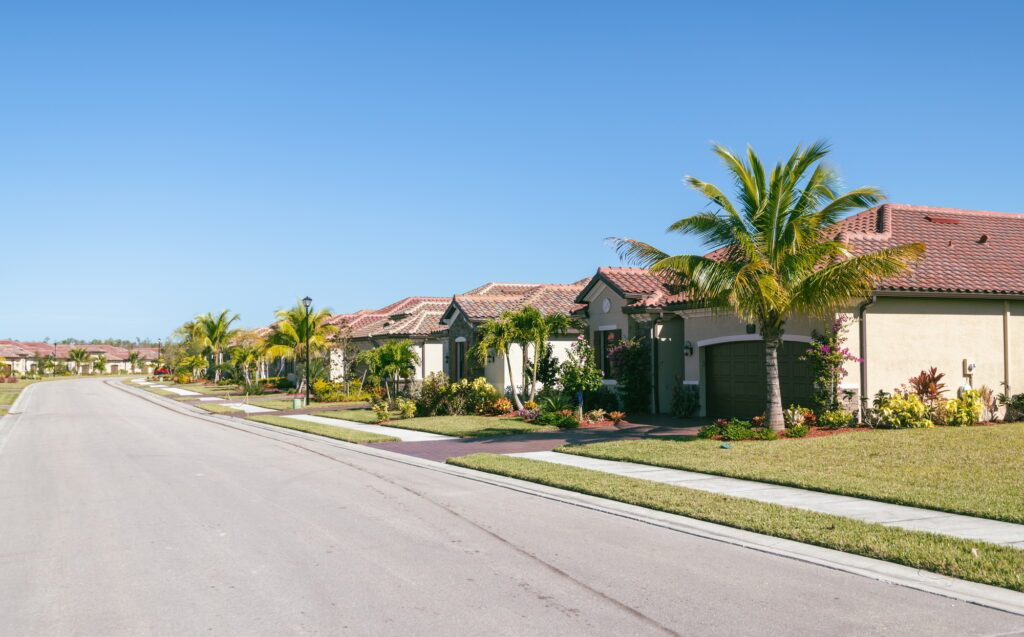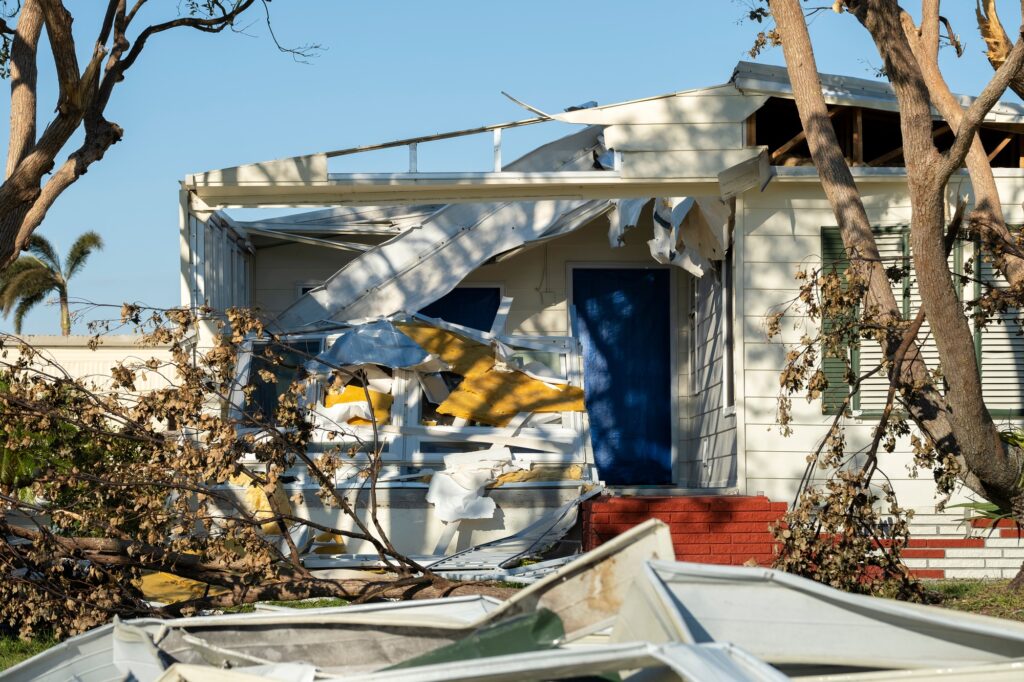Storm season in Florida isn’t just a time of heavy rain—it’s a serious risk to your home and family. From hurricanes to flooding, the damage can add up fast. That’s why having the right insurance and a solid plan in place is so important. With these storm season insurance tips, you’ll learn how to protect your property, prepare for emergencies, and handle claims after a storm. Stay ahead of the weather and keep your peace of mind intact.
Understanding Storm Season in Florida
Why Storm Season Matters for Floridians
Florida’s storm season runs from June to November. That’s six months of potential hurricanes, tropical storms, and heavy rainfall. These storms can cause flooding, roof damage, and power outages. In fact, Florida experiences the most hurricanes in the United States. Between 1851 and 2020, it was hit by 120 hurricanes.
For residents of Fort Myers, the risk is even higher. Being on the Gulf Coast means warmer waters and more intense storms. Hurricane Ian in 2022 caused damage worth an estimated $112 billion across Florida, with Fort Myers taking a significant hit. Preparation is key, and good insurance plays a huge role in minimizing financial stress.
Unique Risks Faced in Fort Myers
Fort Myers isn’t just another coastal city—it’s a hotspot for storm activity. Here’s how storms specifically impact the area:
- High winds: Hurricanes produce winds that easily exceed 100 mph. These winds can rip off roofs, break windows, and throw debris.
- Heavy flooding: Storm surge is one of storm season’s biggest dangers. Just three feet of storm surge can wreck buildings. During Hurricane Ian, floodwaters reached up to 12 feet in some parts of the city.
- Power outages: Strong winds knock out power lines, sometimes leaving residents without electricity for days, even weeks.
Understanding these risks lays the foundation for action. When it comes to storm season insurance tips, knowing your city’s unique risks helps you prepare better and ensure your insurance policy covers the essentials.
Preparing Your Home for Storm Season
Preventative Measures for Minimizing Damage
Taking a few simple steps before storm season can save you from expensive repairs later. Here are some ways to prepare:
- Reinforce windows and doors: Install storm shutters or use impact-resistant glass. Both can significantly reduce breakage during high winds.
- Inspect your roof: Loose shingles can fly off in a storm, leaving your home exposed. Schedule a roof inspection and fix any issues promptly.
- Clear gutters and drains: Clogged gutters can cause water to back up and flood your property. Make sure they’re clean and functioning properly.
- Trim trees and remove debris: Branches can become dangerous projectiles in strong winds. Keep your yard free from items like lawn chairs and tools.
These small upgrades and maintenance tasks are cost-effective and crucial for protecting your home. According to NOAA, wind mitigation measures can reduce hurricane-related damage by up to 40%.
Creating a Home Inventory
Do you know what’s in your home? A detailed inventory can streamline the claims process if your belongings get damaged or lost. Here’s how to make one:
- Photograph all rooms: Capture detailed images of furniture, electronics, and valuables.
- Keep receipts and documentation: Scan important receipts, warranties, or appraisals for big-ticket items like TVs or jewelry.
- Use digital tools: Apps like Sortly or Google Sheets can help you organize your list. Store your inventory on a cloud platform so it’s safe, even if your home isn’t.
This habit doesn’t take long but can make a massive difference when filing insurance claims.
Disaster Supply Kits and Emergency Plans
A well-stocked kit can make all the difference during a storm. Here’s what to include:
- Essentials for survival: Water (at least one gallon per person per day) and non-perishable food for 3-7 days.
- First-aid kit: Include basic medical supplies, any prescription medications, and copies of medical information.
- Emergency gear: Battery-powered flashlight, extra batteries, portable phone chargers, and a weather radio.
- Documents: Insurance policies, ID, and family emergency contacts in waterproof folders.
- Hygiene supplies: Personal hygiene items and cleaning products for sanitation needs.
Having a kit and a family communication plan ensures everyone knows what to do when a storm hits. Planning ahead with these storm season insurance tips means you’re less likely to be caught off guard. Keep preparing now to protect both your home and your peace of mind.
Filing Insurance Claims After a Storm
Steps to Take Immediately After the Storm
The aftermath of a storm can feel overwhelming, but acting quickly can make a big difference. Here’s what to do:
- Inspect your home for damage: Walk around your property and check for damage to the roof, siding, windows, and interior. Only do this if it’s safe to move around.
- Document everything: Take detailed photos or videos of the damage before making any temporary repairs. This evidence will be critical for your insurance claim.
- Prevent further damage: Use tarps to cover holes and board up broken windows. Insurance policies usually require you to take reasonable steps to prevent additional harm to your home.
- Contact your insurance company promptly: Notify your provider as soon as possible to start the claim process. Many companies have mobile apps or hotlines for quick submissions.
Acting within the first 48 hours can speed up your claim and ensure you meet your policy’s requirements.
Common Pitfalls During the Claims Process
Even with good planning, certain mistakes can delay or reduce your insurance payout. Avoid these common pitfalls:
- Not knowing your deductible: Hurricane and flood deductibles are higher than for other types of claims. Be sure you understand how yours works and how much you’ll need to pay out of pocket before coverage kicks in.
- Throwing away damaged items: Keep damaged belongings until the insurance adjuster has seen them. Disposing of them too early might complicate the claims process.
- Missing deadlines: Florida law requires insurers to acknowledge your claim within 14 days and either pay or deny it within 90 days. Make sure you stay on top of communication.
Working with Insurance Adjusters
Once you file your claim, an adjuster will visit to assess the damage. Here’s how to work smoothly with them:
- Be present during the inspection: Walk them through your property so you can point out all areas of concern. Bring your photos, videos, and any receipts as documentation.
- Ask questions: If you don’t understand something about the process or their report, don’t hesitate to ask. It’s better to clarify now than face confusion later.
- Negotiate if needed: If you feel the settlement offer is too low, you can provide additional evidence or hire a public adjuster to advocate for you.
By following these storm season insurance tips, you can make the claims process smoother and stress-free. Preparation doesn’t just stop at preventative measures—it includes knowing how to handle post-storm steps effectively.
Additional Tips for Staying Protected
The Role of an Independent Insurance Agent
When it comes to navigating insurance, having a local expert makes all the difference. Independent agents understand the unique risks of living in Fort Myers. Here’s how they can help:
- Customized advice: They assess your specific needs and recommend the right coverage. For instance, they might suggest higher wind coverage due to Fort Myers’ hurricane history.
- Policy comparisons: Independent agents work with multiple insurance providers. They help you find the best deal without sacrificing coverage.
- Claims support: After a storm, they can guide you through the claims process and ensure you’re treated fairly.
With their deep knowledge of storm season insurance tips and the local market, independent agents are invaluable allies during storm season.
Regularly Updating Your Policy
Storm season can reveal gaps in your current coverage. Updating your policy ensures you’re financially protected. Here’s what to review:
- Coverage limits: Make sure the replacement cost of your home matches current market rates. Construction prices can rise after storms due to high demand.
- Flood insurance: If you added new structures or remodeled, ensure your flood insurance reflects these changes.
- Endorsements or riders: If you’ve purchased valuables like jewelry or electronics, add them to your policy for extra protection.
Reviewing your policy annually is a best practice. This small step now can save you major headaches during a claim.
Staying Prepared Beyond Insurance
Insurance is vital, but it’s not the only layer of protection. Here are other ways to prepare for storm season:
- Know your evacuation zone: Fort Myers has specific zones for storm surges. Visit your county’s emergency management website for maps and guidance.
- Join preparedness drills: Many Florida communities offer storm preparation events. These provide hands-on practice for emergencies.
- Build relationships with neighbors: A tight-knit community can make all the difference during recovery. Check in on each other before and after the storm.
By using these storm season insurance tips and preparing beyond just insurance, you’ll be ready for whatever nature throws your way. Taking action now ensures your home and family stay safe through the season.
Storm season is a fact of life in Florida, especially for Fort Myers residents. Understanding the risks, reviewing your home insurance, and preparing your property can help protect your finances and your peace of mind. Make sure your policy covers wind and flood damage, take steps to safeguard your home, and know the right way to file claims if damage occurs. Extra tips like working with an independent agent and staying connected with your community can also make a big difference. Don’t wait until the next storm hits. Contact us today for advice or to get a personalized insurance quote.







